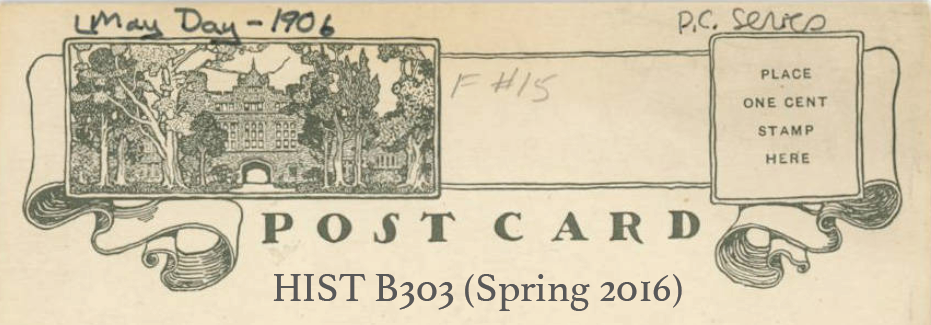I first saw Dean Spade at a talk at Bryn Mawr last year. Before he even began to talk to us about his presentation topic, he took a moment to reflect on the Native American land that Bryn Mawr was located on. He reminded us of the privilege that we had to be in that space, and that the things that we could take from that space could open other doors for us. He told us not to ignore this privilege, but to recognize it, and to use our resources to make effective change in order to help others. Then, he began his presentation. I had never, in my entire college career (life even), had a presenter begin by having us recognize the basic foundations upon which we stood.
In the vimeo of Dean Spade speaking at Barnard College, he begins his presentation in the same way. I’m going to use this blog post to do a self-reflection on the fact that trans folk have been excluded from educational opportunities in the context of Bryn Mawr until recently (and arguably still are today).
Only recently has Bryn Mawr opened its doors to trans women. That decision, even, had been hotly contested within the administration. I would argue, even more so, within the student body. I remember I once heard a group of students talking (I was totally ease dropping), saying something to the extent of “A Women’s college is meant for women, so I think this whole thing is ridiculous.” Something even more shocking was “I wouldn’t feel comfortable with them on campus.” This sort of transphobia ranges from mircoagressive to down-right prejudice. Who are we to place a value judgement on someone’s life in order to deny them an education? Bryn Mawr was created to give women (white, cis-gendered, traditional age, wealthy) an education because they were seen to have less opportunities to receive an excellent education. Key words: they were seen to have less opportunities to receive an excellent education. Why does this fundamental doctrine not ring true of other people- people of color, trans folk, non-traditional aged students, students from low income families. Are we not all entitled to an education that can change the way we think, the way we live, for the better? Simply on a moral stand point, I would find it hard to turn away someone searching for an education based on something as silly as their identity- I would rather focus my attention on people who have been systematically opressed and who do not have the same opportunities.
